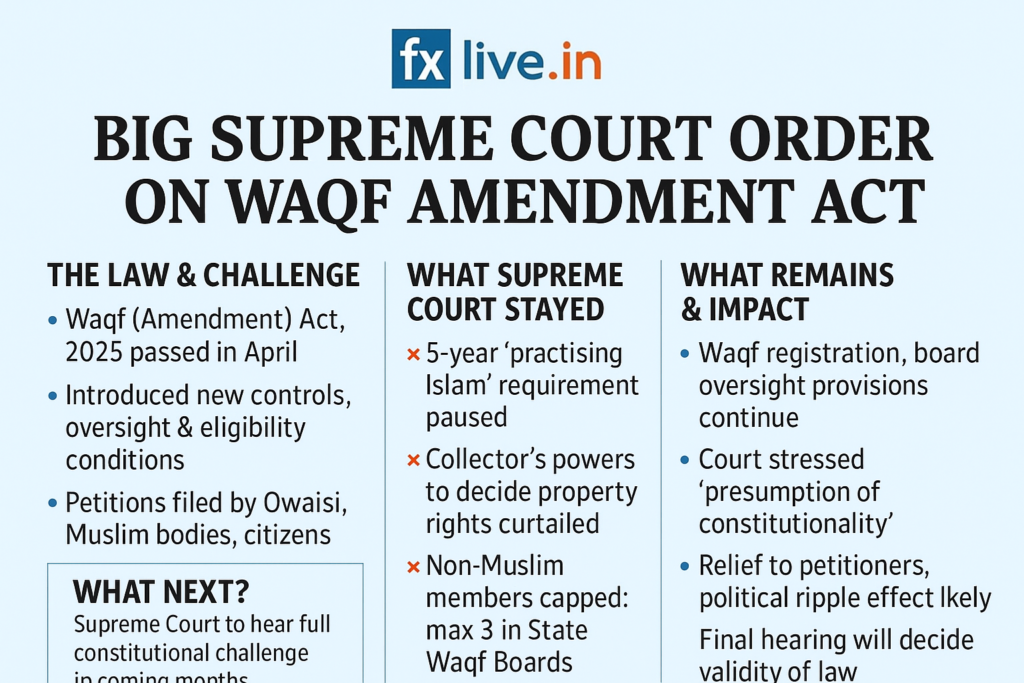Jai Siya Ram
Here are the full details on the Supreme Court’s recent interim order on the Waqf (Amendment) Act, 2025: what was stayed, what remains, arguments, and implications.
🏛 Background
- The Waqf (Amendment) Act, 2025 was passed by Parliament and received Presidential assent in early April 2025.
- The amendment introduced several changes to the Waqf Act, 1995, aimed at greater oversight, regulation, and defining who can create waqf, how waqf properties are managed, etc. It sparked protests and legal challenges, especially from Muslim organisations and rights groups.
- Multiple petitions were filed (e.g. by Asaduddin Owaisi, Muslim Personal Law Board, others) challenging the constitutional validity of certain provisions under this Amendment.
⚖ Legal Reasoning & Principles
- The Court emphasised the constitutional principle of “presumption of constitutionality”, i.e. laws passed by Parliament are presumed valid, so it is only in “rarest of rare cases” that the Court stays or strikes down statutes.
- It looked particularly at potential for arbitrary power — specifically, the risk that the “5-years practising Islam” clause, or allowing an executive (Collector) to determine personal citizen rights, could lead to arbitrary or unfair decisions.
- Separation of powers: executive officers (like District Collectors) should not adjudicate rights that properly lie within judicial/tribunal jurisdiction.
🔒 What Remains Unaffected (for Now)
- The Act remains largely in effect, except for the stayed provisions.
- Registration requirement for waqfs remains—for properties being declared waqf etc. The Court did not stay the registration process.
- Some provisions for oversight, regulation under new law continue (those not specifically stayed by the order).
🌐 Implications
- The decision gives temporary relief to those who argued the Amendment infringes on religious freedom, property rights, and statutory limits.
- The government cannot enforce the stayed parts until the final decision. This means no person will be required to “prove 5 years of Islamic practice” immediately; Collectors can’t yet adjudicate property encroachment disputes under those authority provisions.
- There is political fallout: Opposition and Muslim bodies welcomed the stay, saying it partially addresses their concerns.
- The order does not invalidate the law, so the rest of the law remains operational. Challenges will continue in Supreme Court; final constitutional questions will be decided later.


